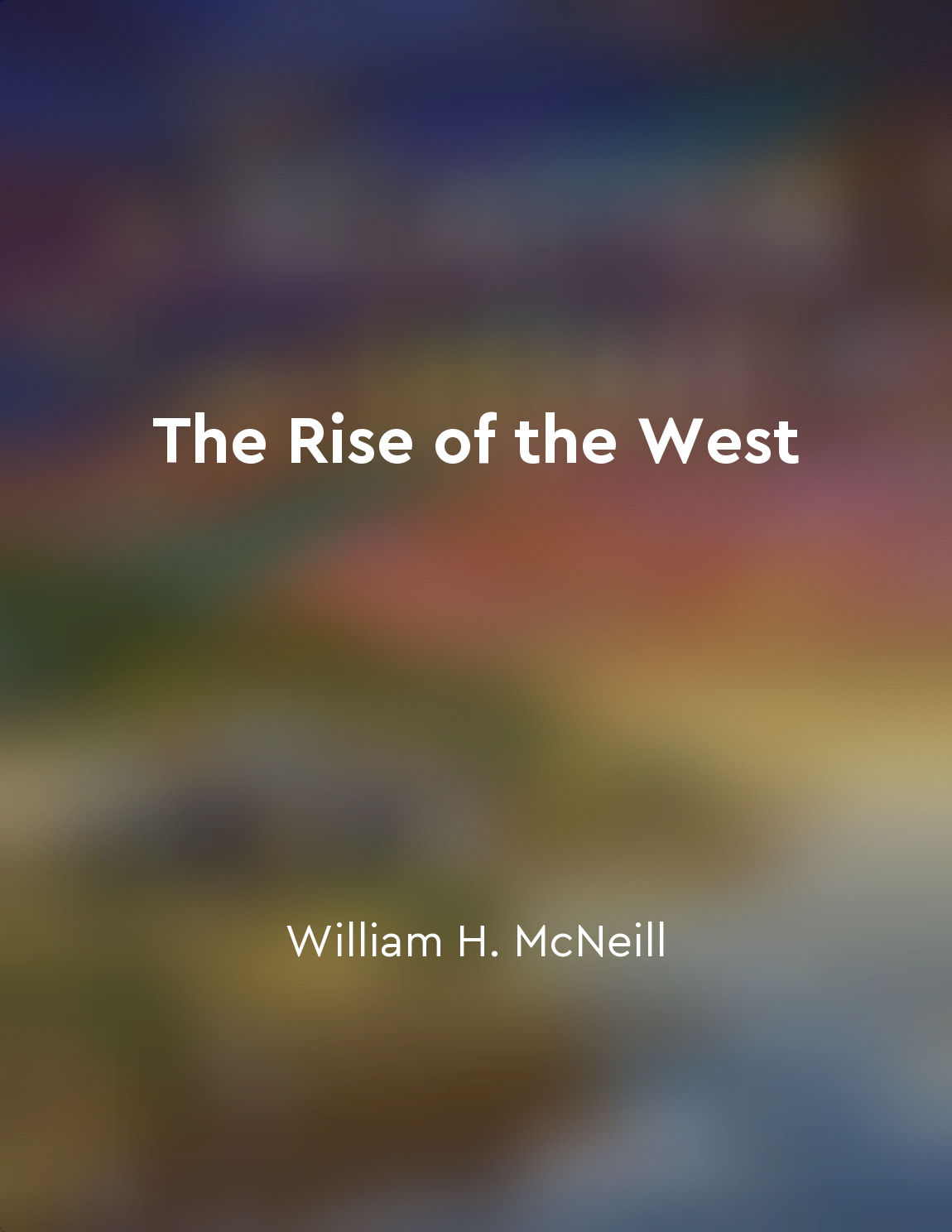The West's dominance is challenged by other civilizations from "summary" of The Rise of the West by William H. McNeill
The ascendancy of the West, which has characterized the past five centuries of world history, is now being challenged by other civilizations. This challenge is not merely a passing phase but represents a fundamental shift in the global balance of power. As non-Western societies such as China, India, and the Islamic world continue to grow and develop, they are asserting themselves on the world stage in ways that were unimaginable in the past.
The West's dominance, which was built on a combination of military power, technological superiority, and economic wealth, is no longer as secure as it once was. The rise of other civilizations has created new sources of power and influence that are reshaping the international order. These civilizations are not content to remain on the sidelines of history but are actively seeking to challenge the West's position of preeminence.
The challenge posed by other civilizations is not limited to the realm of geopolitics but extends to all aspects of human endeavor. In fields as diverse as science, technology, culture, and religion, non-Western societies are making significant contributions that are reshaping the global landscape. The West's traditional monopoly on knowledge and innovation is being challenged as other civilizations assert their own intellectual and creative capabilities.
The rise of other civilizations is also challenging the West's moral and ethical authority. As non-Western societies assert their own values and traditions, they are calling into question the universal validity of Western ideals such as democracy, human rights, and individual freedom. The West's claim to moral superiority is being challenged by the diversity of ethical perspectives that exist in the world today.
In response to the challenge posed by other civilizations, the West must reassess its own values, beliefs, and practices. It can no longer afford to take its dominance for granted but must engage with other civilizations on an equal footing. This will require the West to be more open-minded, tolerant, and respectful of the diversity of human experience that exists in the world.The rise of other civilizations represents a new chapter in the story of human history. It is a chapter that is still being written, with no clear outcome in sight. The West's dominance may be challenged, but it is not necessarily doomed to decline. By engaging with other civilizations in a spirit of mutual respect and cooperation, the West can adapt to the changing global landscape and continue to play a leading role in shaping the future of humanity.

Open in app
The road to your goals is in your pocket! Download the Oter App to continue reading your Microbooks from anywhere, anytime.


